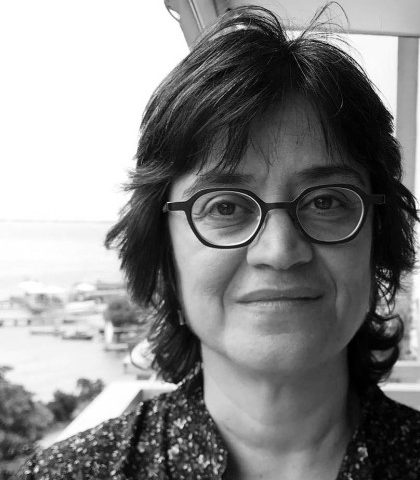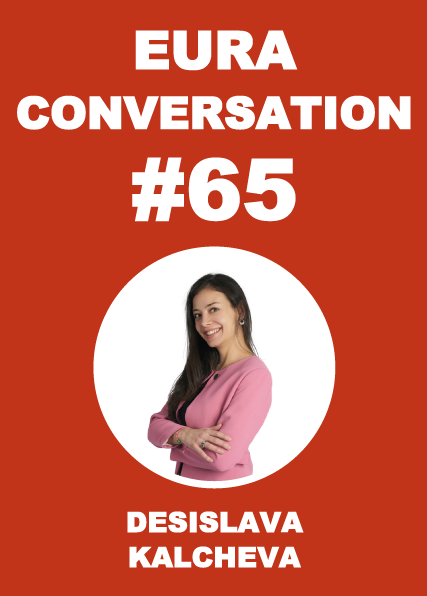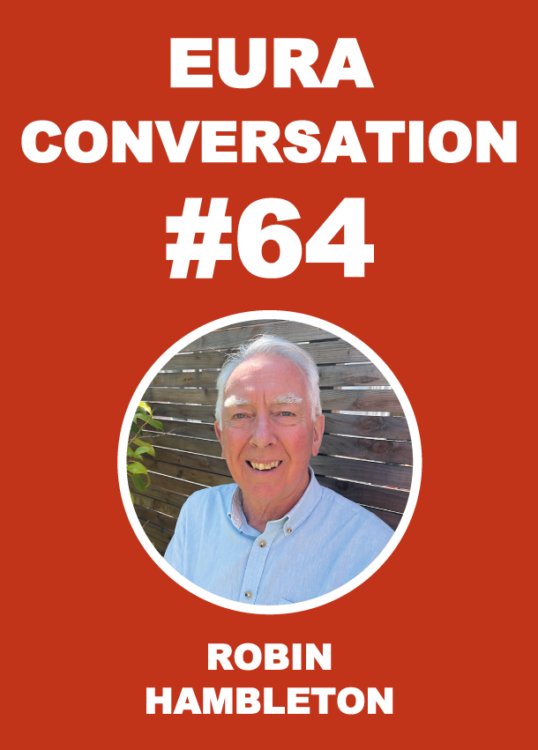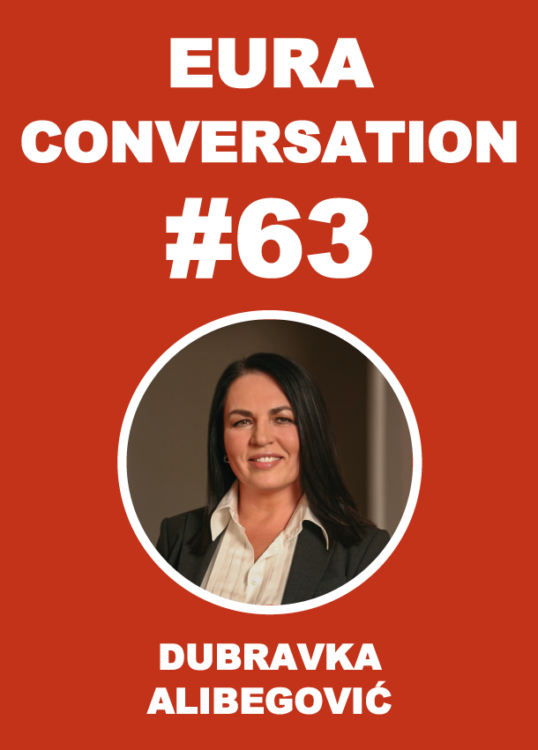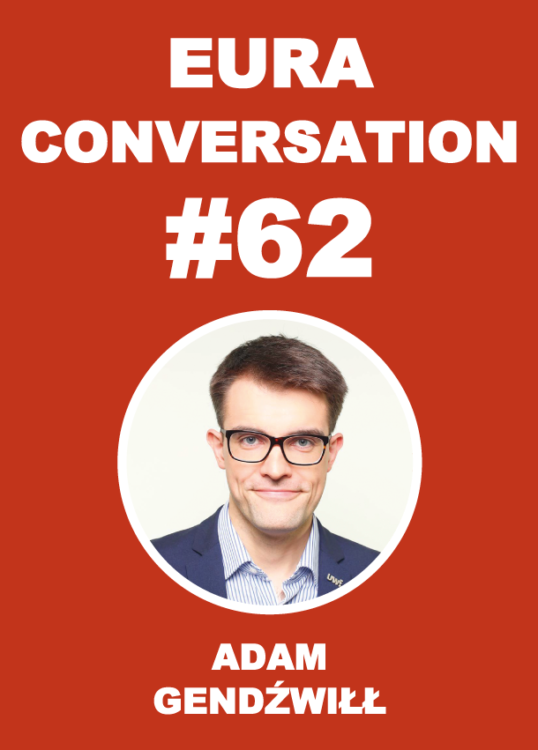
#24 Africa
10/05/2021
6th Dortmund Conference – Call for abstracts
24/05/2021How will the COVID-19 pandemic affect the use of public space?
EURA Conversations Post #25 – 24 May 2021
Evangelia Athanassiou, School of Architecture, Aristotle University of Thessaloniki
Research on public space was already proliferating long before the COVID-19 pandemic started. And so were worries regarding the erosion of its true function as a democratic space accessible to everybody as well as projections of “the end of public space”.
Already in the early 1960s, Melvin Webber, of the University of California Berkeley, was forecasting “community without propinquity” and the “nonplace urban realm”, presciently reflecting upon the effects of communication technologies on cities. The now dominant paradigm of attractive, lively, “clean and safe” public space often entails exclusionary practices that undermine the public nature of parks and squares. Widespread sense of insecurity, triggered by a, real or imagined, increase in criminal offences and terrorist attacks, offers legitimation to a wide spectrum of policies, regulations and surveillance as well as spatial practices that restrict access and inclusiveness. The onset of the digital era and restrictions on the use of public space are not new. They have, however, been given unpredictable twists during the COVID-19 pandemic.
E-commerce surged, distant learning and working became the norm, even meetings with friends and family have been abruptly transferred to digital platforms. Physical public space acquired new meanings; its use changed and attracted a lot of attention, during the pandemic. Parks and squares became the only places where people could go during long lockdowns. Contrary to the dominant paradigm, in the context of the pandemic, intensive use of public spaces is seen as unsafe as it increases the risk of spreading the virus, and people crowding in public are often deemed anti-social and irresponsible by the media.
Hence, public space is now strictly regulated: in many countries citizens are only allowed to move out for specific reasons, wearing masks is obligatory, physical distancing is required, evening curfews are in place, sometimes as early as 6:00pm. Policing is intensified to enforce the rules that change in response to changing epidemiological data.
Undoubtedly, earlier trends eroding the “publicness” of public space and current changes are not geographically homogeneous, and it is important to identify common threads and differences. My personal experience comes from Thessaloniki, a very densely built city of the European South. As parks and squares are extremely sparse, they became crowded with evening strollers during the pandemic. In spring 2020, during the first lockdown, the city’s biggest and most prominent public space, the New Waterfront, was closed to citizens to avoid the spread of the virus. New spaces, e.g. car parks, school playgrounds, peri-urban creeks and walkways were discovered by citizens, unveiling new possibilities for the city. During the long second lockdown, the young started flooding squares and sidewalks for outdoor partying and were demonized, by the media, as thoughtless and irresponsible virus spreaders. Policing of squares became an everyday fact.
As Lefebvre declared in 1968, the ‘right to the city’ —the right to inhabit and make the city, most tangibly exerted in its streets and squares— is ‘like a cry and a demand’ and it cannot be taken for granted. During the pandemic, the “cry and demand” for physical public space became evident and vital, as illustrated by Marichele Sepe in EURA conversation 6 and Dannielle Sinnett in EURA conversation 22.
At the same time, as many activities moved to the private and controlled space of the home, the function of public space narrowed. In many countries it became strongly regulated and policed, in response to a pervasive concern about public health. While this may now be a vindicated state of emergency, it is also a condition that needs to be reflected upon before we go back to normal. What was a “normal” public space before? And what is it going to be after the health mandate is lifted?
In the next EURA Conversation Julia R. Kotzebue offers a Caribbean perspective on the COVID-19 pandemic.

